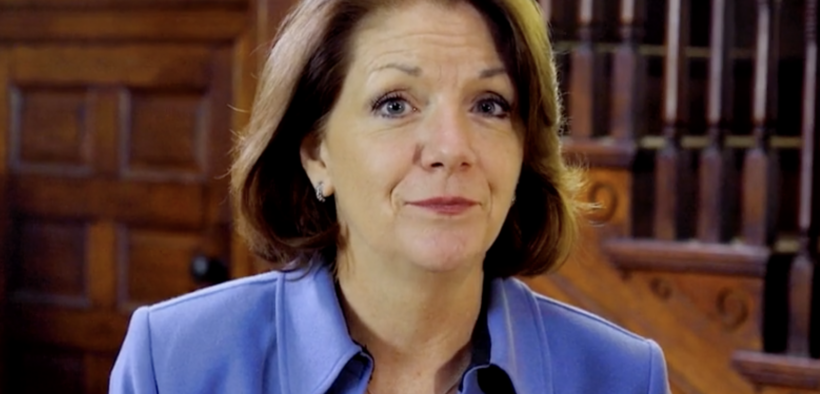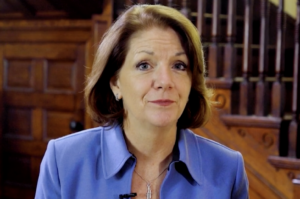Long-Time Advocate Advises Care in Donating to Anti-Trafficking Organizations
Jeanne Allert urges donors to ask questions before giving

Well-meaning donors passionate about fighting human trafficking can do more harm than good if they give money to groups without due diligence, says Dr. Jeanne Allert, president of the Institute for Shelter Care.

“My heart breaks when people with tremendous resources are passionate about a project, give a million dollars to it, and it blows up in a year,” Allert told MinistryWatch.
Instead of helping the victims of trafficking, the money is wasted.
As the head of a training and research organization whose mission is to “equip Christian ministries with the knowledge, skills, tools, and community needed to provide exemplary restorative care to the sexually exploited,” Allert has advice for donors who want to wisely support the cause. She has been working with trafficking victims since 2007.
First, check whether the ministry is connected to the larger anti-trafficking universe and also connected to the local anti-trafficking community, she says. Ask if they can accurately describe what trafficking looks like in their community—that will demonstrate how involved and educated they are about the problem. If they have grandiose plans, Allert says that is a recipe for disaster. She says her group looks for teachability among the organization’s leadership.
It is challenging to determine an exact number for domestic sex trafficking victims because there is not a unified, consistent way to capture data and track the problem across the United States.
Some reports suggest there are 300,000 domestic sex trafficking victims, but Allert says it’s hard to trace the origins of that number. She contrasted it to a study by the University of Texas that found 79,000 child sex trafficking victims in Texas alone. If one extrapolates that to other states and includes adults, it suggests a number much higher than 300,000.
Access to MinistryWatch content is free. However, we hope you will support our work with your prayers and financial gifts. To make a donation, click here.
After meeting victims of sex trafficking in 2007, Allert sold everything to start a shelter in Baltimore. She named it The Samaritan Women after the story in the Bible.
Awareness of domestic sex trafficking grew between 2014 and 2016 as movies and documentaries brought the issue to light, she says.
In 2018, after experiencing success in its ministry to victims, The Samaritan Women pivoted and became the Institute for Shelter Care. It gave up direct service and now helps train and equip other shelters to make faith-based care excellent in all areas.
It provides training to raise the quality of care provided to victims, research to gauge the effectiveness of practices, tools like a customized client management system, and community for those involved in the anti-trafficking work.
Since the COVID pandemic, Allert says funding for local shelters has not been as favorable as it was a few years ago. She said the movie “Sound of Freedom” has been helpful in again raising awareness, but she believes economic conditions currently facing the country will continue to impact lower capacity donors upon which most shelters depend.
Most victim shelters are small operations with an average of nine beds and modest budgets. There are only 116 faith-based shelters across the United States currently. More shelters are needed, but the Institute is planning to “pause on new ones and focus on building up the strength and stability of those functioning well.”
Intake and referrals to shelters used to come primarily from the Department of Justice and law enforcement. A study recently conducted by the Institute for Shelter Care found that their referrals now come from human service organizations like crisis pregnancy centers and homeless shelters. Training and mandatory reporting have contributed to the referrals.
One service area for trafficking victims that needs to grow, Allert says, is emergency shelter. These short-term shelters usually help identify and assess victims’ needs, keep them for up to 30 days, and then refer them to a longer-term restorative program.
Most longer-term shelters have programs ranging from 12 to 18 months, but Allert says that barely scratches the surface of the many issues the trafficking victims face. A recent survey showed that most shelters offer over 150 services to clients.
At the root of the wounds endured by the trafficking survivors is a “maligned view of true relationship,” Allert noted. “It is a long walk to redefine their perception of relationships.” But it is possible, Allert says. “You can literally see in the life of survivors where the Gospel tangibly changes them. It is inexplicable apart from the Spirit of God.”
A fast-growing area for serving survivors is transitional living, which allows for some independent living while providing accountability.
The Institute for Shelter Care is a member of the Evangelical Council for Financial Accountability and has a gold star rating by Guidestar. It posts its IRS Form 990s and audited financial statements on its website. In 2021, it had revenue of $1.4 million and expenses of $1.27 million.
Main photo: Jeanne Allert, president of Institute for Shelter Care



